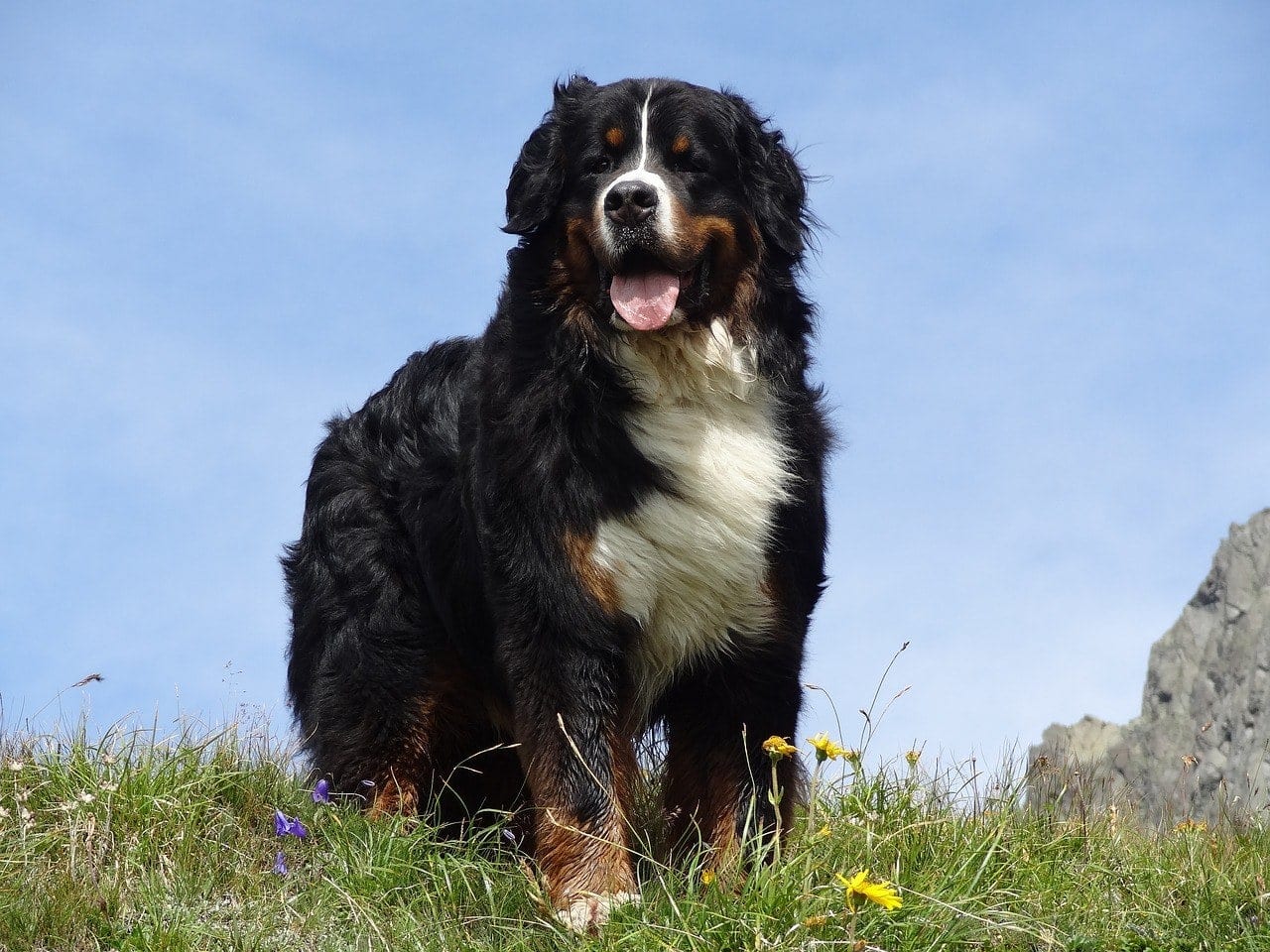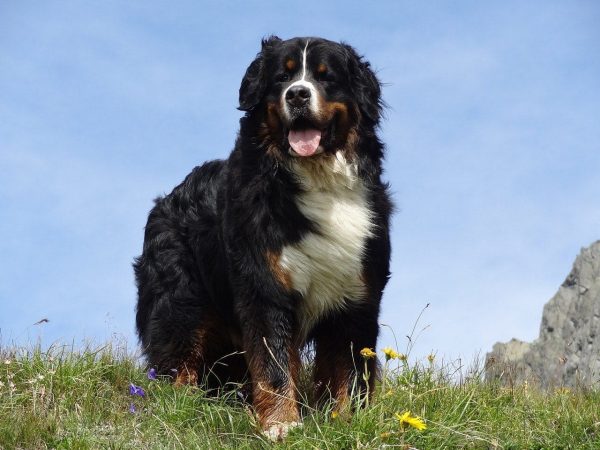Click to Skip Ahead
The Bernese Mountain Dog is no slouch. This muscular breed is used to working, which is why they are so popular on ranches and farms. These dogs are just as good at being family pets as they are at being workers. They will happily play with the kids, and they always protect their human family members from perceived threats.
This purebred dog does not tolerate boredom and enjoys life outdoors. They will happily accompany you on camping and hiking trips. This is not to say that they don’t enjoy their fair share of time snuggling with their human counterparts indoors, however. Let’s discover everything there is to know about the Bernese Mountain dog’s lifespan which is on average between 7 and 10 years.
What’s the Average Lifespan of a Bernese Mountain Dog?
The average Bernese Mountain dog lives between 7 and 10 years. Some may ask why these dogs have such short lifespans, and part of the answer is that they are big dogs. The larger the dog, the shorter lifespan they are expected to have. Unfortunately, Bernese Mountain dogs are also susceptible to serious health problems that tend to keep their lifespans on the short side.
The biggest problem that Bernese Mountain dogs face is cancer. Unfortunately, cancer keeps a good portion of these dogs from living full, long lives. Cancer is found in almost 10% of Bernese Mountain dogs by the time that they reach the age of 6. Even more end up with cancer after that time.
- Hip and elbow dysplasia
- Arthritis
- Kidney ailments
- Heart problems
Things such as nutrition, environmental conditions, and lineage can also impact the lifespan of a Bernese Mountain dog.

Why Do Some Bernese Mountain Dogs Live Longer Than Others?
Certain life factors can play a role in the lifespan of a Bernese Mountain dog. For instance, the cleanliness of their environment can impact their health as time goes on. Here are a few other factors to consider.
1. Nutrition
What a Bernese Mountain dog eats plays a large role in their health and overall lifespan. If their diet is lacking in nutrition, their bodies cannot fight off viruses and other ailments. They cannot ensure that cancer cells will stay at bay.
These dogs need high-quality kibble loaded with real meat ingredients, whole grains, and fruits and veggies. They can also eat fresh fruits and veggies like apple pieces, pears, carrots, and greens as snacks to enhance their ability to fight off cancer and other health problems.
2. Environment and Living Conditions
Another factor to consider when it comes to a Bernese Mountain dog’s lifespan is the environment and living conditions. If this dog’s environment is not kept clean, it can lead to fungal infections and the development of viruses as they age.
Living conditions are important. Floors should be clean, feces and urine should never be left to fester in a kennel, and supervision in public spaces is essential to minimize the risk of catching illnesses such as kennel cough and parvo.

3. Size
Size does matter when it comes to the lifespan of a dog. In a large study done by a German evolutionary biologist, large dogs tended to die sooner than small dogs due to problems like cancer. The researcher concluded that large dogs grow quicker and therefore develop more abnormal cell production than small dogs do. Also, it is thought that a large dog ages more quickly and therefore experiences age-related illnesses earlier in life than a small dog would.
4. Genes
Genes can always play a role in the lifespan of a living being. If a parent is predisposed to a certain type of cancer or ailment, chances are that their offspring will also be susceptible to that same ailment. Sometimes, problems like dysplasia are passed down for generations. The same can be said for heart disease and various cancers.
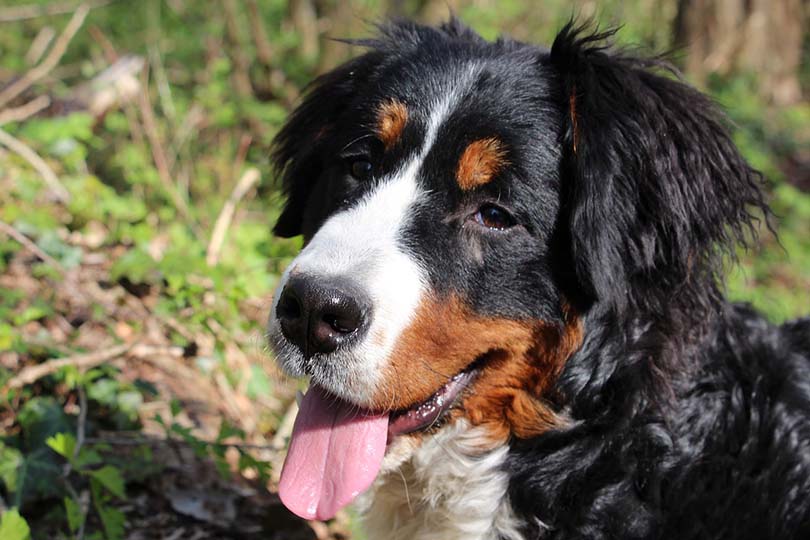
5. Healthcare
Healthcare is extremely important for dogs of all types, including the Bernese Mountain dog. Just because this dog breed is hardy and self-reliant for the most part does not mean that they should go without preventative medical care.
Preventative healthcare can help Bernese Mountain dogs avoid many of the health problems that they are susceptible to. These dogs, like any dog, should see a veterinarian at least once a year as part of their preventative care plan.
The 4 Life Stages of a Bernese Mountain Dog
There are four major life stages of a Bernese Mountain Dog to be aware of. By understanding the life stages, you can gain insight into how much longer your pet Bernese Mountain dog has left to live. Here is what you should know.
1. The Puppy

Bernese Mountain puppies are almost always recognizable because they are between the size of a football and a fully grown Beagle, give or take. These puppies are rambunctious, curious, active, and sometimes even “troublemakers” by nature. This is the best time to start the obedience training process.
2. The Teenager
Teenage Bernese Mountain Dogs should be about the height and length that they would be as adults. However, they will likely look skinny and in need of bulking up, which should happen quickly within the next couple of months. Teenage Bernese Mountain dogs tend to be a little standoffish and reserved as they try to figure out what is and is not a threat in their lives.
3. The Adult
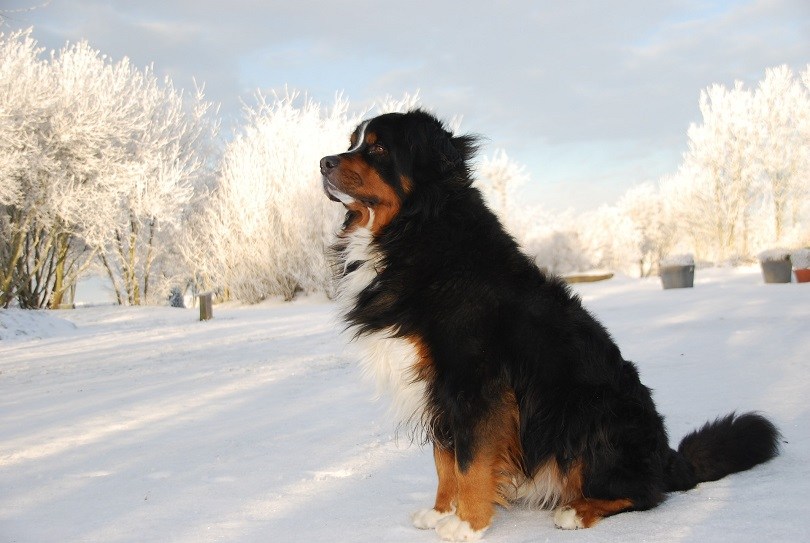
Adults are confident, independent, loving, and calm in most social situations. They are protective of their human family members, and they should be calmer than they were when they were puppies and teenagers.
4. The Senior
The typical senior Bernese Mountain senior is slower in pace and less curious about what is going on around them. Seniors may start to show signs of serious disease or illness. At the very least, they will probably show signs of arthritis and lethargy. This is when you know that they are in the last stage of life, which could last anywhere from a few months to several years.
How to Tell Your Bernese Mountain Dog’s Age
The most effective way to tell a Bernese Mountain dog’s age is to consult with a veterinarian. Your vet can perform a series of tests and conduct a physical evaluation, both of which should help them better understand the dog’s age.
Understanding and identifying the different life stages is another tactic that can help you determine the age of your Bernese Mountain dog. If your dog starts to lose interest in toys and would rather lie around than get active with the kids, chances are that they are in their senior years.
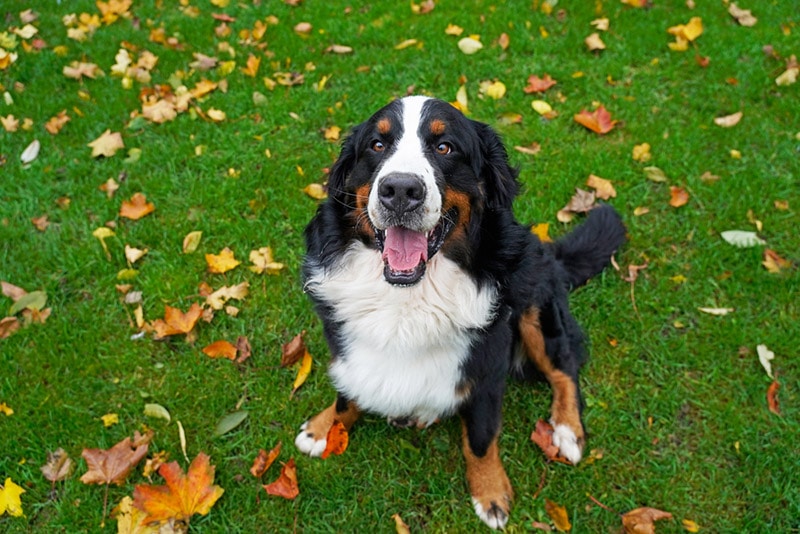
In Conclusion
The Bernese Mountain dog is a large, muscular, active dog that can spend hours on the farm herding or in the yard playing with kids. However, as they age, they tend to slow down and require more comfort and extra opportunities to relax. Just because a dog is at the end of life does not mean that adventure and excitement cannot be experienced. Consider going on strolls in the park or long walks on the beach.
See Also:
Featured Image Credit: Othmar Sigrist, Pixabay

